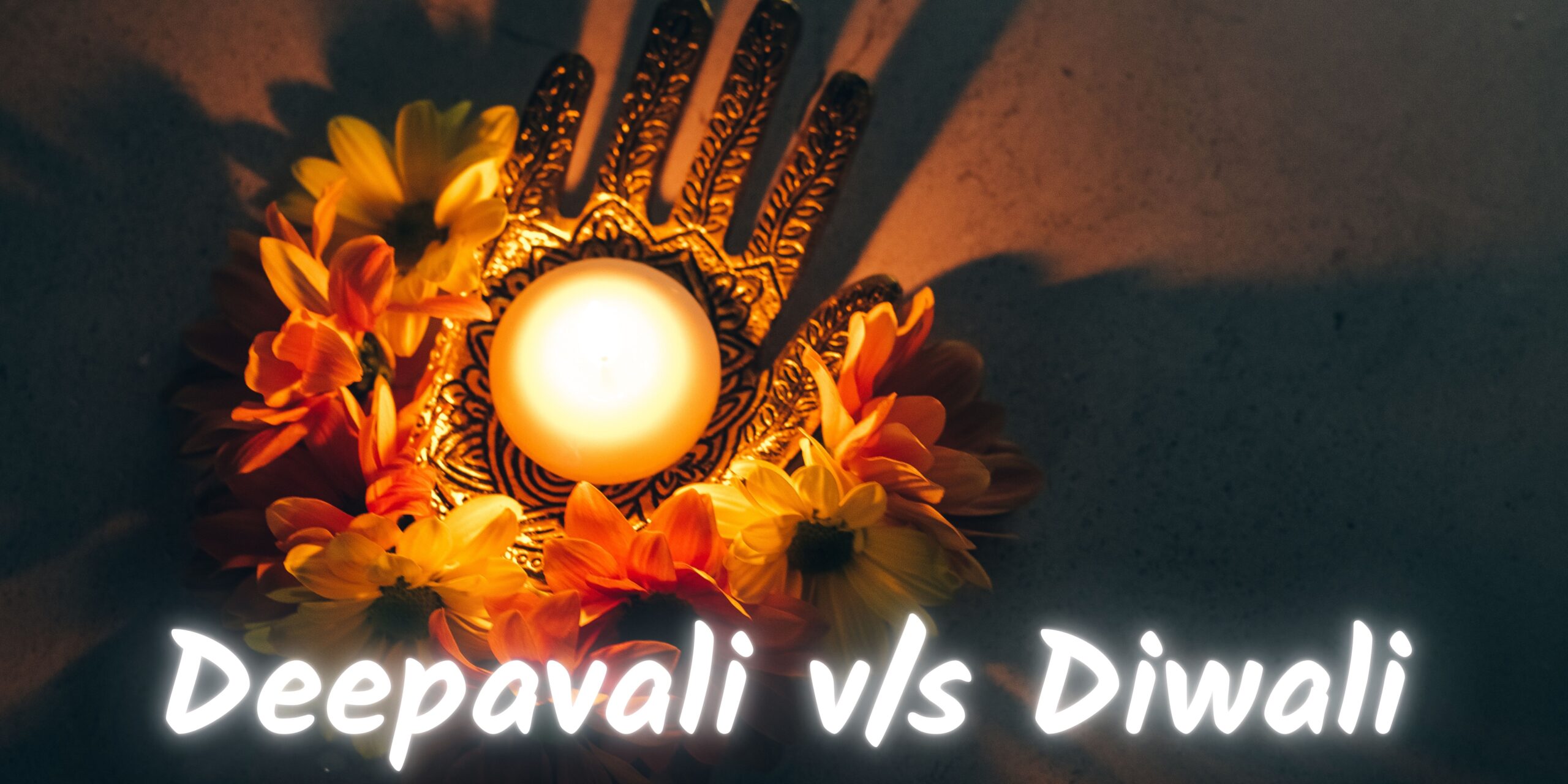Deepavali and Diwali essentially refer to the same festival celebrated by Hindus, Sikhs, Jains and some Buddhists. However, there are some subtle differences between the terms Deepavali and Diwali:
Etymology and Origins
The word “Deepavali” comes from the Sanskrit words “deepa” meaning lamp or light and “avali” meaning row or series. So Deepavali refers to a row or series of lights.
“Diwali” has various proposed etymological origins:
- From the Sanskrit word “Dīpāvali” meaning row or series of lights
- Derived from the Sanskrit words “dīpa” (lamp) and “āvallī” (row)
- From the Sanskrit word “dīpamālīka” referring to a row of lamps
- Linked to the Sanskrit word “darśapūrṇamāsa” referring to the full-moon night in the Hindu month of Kartika
So while the terms are used interchangeably, “Deepavali” more literally translates to a row of lamps, which is a key part of Diwali celebrations.
Regional Variations
In North India, the festival is more commonly referred to as Diwali. Whereas in South India, Deepavali is the more widely used term.
However, both terms are universally understood throughout India and the diaspora. Deepavali is also the preferred name used officially in certain Southeast Asian countries like Malaysia and Singapore that have large Hindu populations.
Different Spellings
Deepavali is sometimes spelled as “Deepawali” or “Dipawali”. Diwali has variant spellings like “Divali”, “Dewali”, “Divvali”, etc. But the most common and accepted spellings are “Deepavali” and “Diwali”.
So in summary:
- Deepavali and Diwali refer to the same festival of lights celebrated by Hindus, Sikhs, Jains and some Buddhists
- Deepavali more literally translates to “row of lights”
- Deepavali is preferred in South India, while Diwali is more common in North India
- Both terms are universally understood and accepted
Key Elements of Deepavali/Diwali Celebrations
Deepavali celebrations symbolize the spiritual victory of light over darkness, good over evil, and knowledge over ignorance.
The key elements of Deepavali festivities include:
- Lighting oil lamps (diyas) and candles throughout homes to dispel darkness
- Offering prayers (puja) to Lakshmi, the goddess of wealth and prosperity
- Decorating homes with colorful rangoli floor art designs
- Wearing new clothes and exchanging gifts
- Feasting on sweets and savory dishes
- Visiting friends and family
- Lighting firecrackers (more common in North India)
- Performing Laxmi Puja to seek the blessings of Lakshmi
- Marking important myths and legends associated with various deities like Rama’s return to Ayodhya after exile
The lighting of lamps signifies triumph over evil and the onset of a new beginning full of hope, success and wisdom. Deepavali celebrates positive values and a renewal of life.
